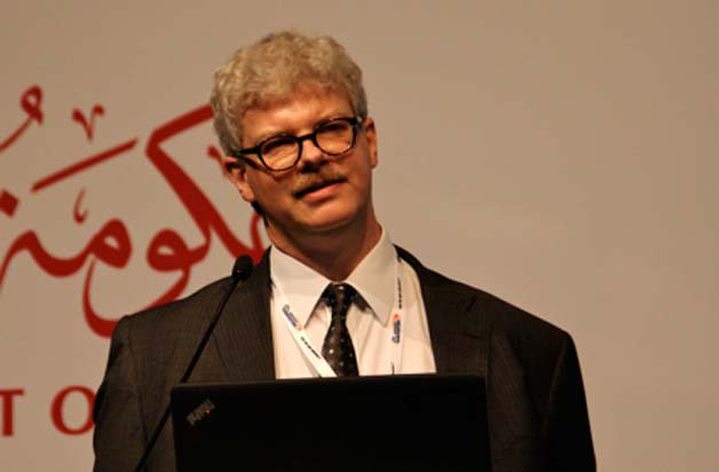Africa Rewards Patient Hotel Investors

DUBAI—All signs point toward Africa as an emergent hotel hot spot, but investors and operators need to be equipped with a good dose of local know-how and patience, hospitality experts at The Hotel Show in Dubai said.
According to the United Nations World Tourism Organization, Africa saw approximately 52 million international tourist arrivals last year, a 6% increase from the previous year. Last year Africa’s revenues from tourists increased by 2.8%, reaching $34 billion.
During the first eight months of the year, occupancy for Africa was up 1.6% to 55.3%; average daily rate was down 2.6% to $110.96; and revenue per available room was down 1.1% to $61.35, according to STR Global, sister company of Hotel News Now. Occupancy growth is being driven by continued recovery years after the Arab Spring, while rate has been slowed by recent episodes of volatility throughout the continent as well as economic uncertainty in South Africa, according to Naureen Ahmed, manager of marketing and analysis for STR Global.
Africa’s economic indicators are set to green. The International Monetary Fund is predicting gross domestic product growth of between 2% and 6% or more for most of its countries, an average of 5.5% in 2013 for the continent, lifting millions of consumers into the mid-income category.
“A geopolitical shift from the Middle East, seen as unstable, to Africa, increasingly viewed as a stable economy, is likely,” said Guy Wilkinson, managing partner at Viability Management Consultants, a hospitality consulting company in the Middle East.
Positive indicators include: foreign direct investment increasing 4.5%; lower inflation, down from 9.5% in January 2012 to 7.6% in December 2012; and the Africa’s minable resources, such as copper and cobalt, according to Wilkinson.
He said oil is expected to play a major role, apart from the known existing producers, with Nigeria and Angola leading. Ethiopia, Uganda, Kenya, Tanzania, Malawi and Mauritius in the East, as well as Ghana, Liberia, Sierra Leone, Senegal and Gambia in the West, are indicated to have exploitable resources.
“There are only going to be a handful of countries not involved in some form of mineral exploitation,” he said. “Guinea produces 8% of the world’s bauxite; Zambia and the (Democratic Republic of the Congo) have 7% of the world’s copper; and Ghana and Mali exploit 6% of the world’s gold, for example. Conflicts have equally been reduced, and countries like Burkina Faso and Niger coming out of conflict are quickly rebuilding, including hotels.”
Wilkinson said the hot spots for development in Africa include:
- Luanda, Angola. He said Luanda is a difficult place to do business, but there is an undersupply of hotels.
- Accra, Ghana. There is a burgeoning middle class here, he said. Ghana itself is politically stable, has gorgeous beaches, tropical forests and rich history.
- Nairobi, Kenya. The city has a business infrastructure, a highly qualified workforce and is a safari tourism hub.
- Lagos, Nigeria. According to STR Global, year-to-date August, the city saw ADR of $276.41 and occupancy at 64%.
Developers are taking notice of Africa’s prospects. In September Mangalis Management Group, the hospitality management arm of Inaugure Hospitality Group, announced plans to invest $507 million to build 15 hotels in 13 Sub-Saharan countries, including Nigeria and Ghana. The company will construct 2,200 rooms and suites across 15 properties.
Development challenges
“The single most difficult problem in Africa is to get the hotel actually built,” said Steven Miller, senior VP of business development for Shapoorji Pallonji International, an India-based engineering and construction firm. “It is a dream come true to design a hotel in Africa, but many don’t understand how much it actually costs—and it will be triple that than in London.
“One way (to develop) could be for 3- and 4-stars import factory-made modules, but then you have the challenge of container shipping and transporting them over precarious roads and so on. You have to find a way to handle this issue,” he added.
And because most hotel developers use equity because financing is hard to come by, cash simply can run out and the projects stall until more has been found.
“After finding the finance construction, (which) has always been the challenge, 50% of projects face a delay of over a year. We’ve been working on finding a solution/concept to finish construction within 24 months,” said Jean-Marc Grosfort, chief development officer for Middle East & Africa at Marriott International.
“Many owners have no clue what a hotel actually entails. You need a lot of cash to start with, and they don’t understand you need a proper project management team in place. It is a bit like schooling them, a difficult learning experience, but there are lot of excited investors,” he added.
The construction industry is underdeveloped, and supply chains are just about to take off, according to Meelis Kuuskler, Hospitality Design Partnership’s founder and managing partner, who is working on a hotel in Tanzania.
“A one- to two-year delay in opening a hotel is pretty good in Africa,” he added.
“We were planning to open our hotel in Accra in 2013, but now it is the second quarter of 2014. The delays we’re experiencing, like most operators, are due to supply chain issues. We want to offer the luxury quality we promise, so we have to wait for the products to arrive,” said Lashley Pulsipher, regional director of public relations in India, Middle East & Africa for Kempinski Hotels S.A.
But the whole continent cannot be painted with one brush, Kuuskler said. “Every single country in Africa comes with its own fees, challenges and skill sets. There are a lot of challenges when you’re on the ground and growing day by day.”
Local expertise
It often comes down to local expertise, Wilkinson said.
“Take Zanzibar—it is an exotic dream to have a hotel there, and there are about 100 today. However, they are mostly smaller lodges, some charging as much as $500 a day but are running on generators, for example. They know how things get done having an advantage over larger groups,” he said.
Because of this local understanding, well-known South African brands, such as Southern Sun and Protea, are usually the ones to enter countries first. However, Pulsipher said Kempinski is eyeing to take over the famous Hotel Rwanda, the Hôtel des Mille Collines.
“The long traditions of hospitality in Africa also make it easy to recruit locally, like in Kenya. Accra also has hotel schools. There is a great future for staffing our hotels,” she said.
Marriott’s Grosfort agreed with the other panelists to a certain extent, but reiterated that it all depends on the country.
“Our Marriott in Kigali will open next year, and we’ve started eight months ago to recruit staff from there and are training them here in the Middle East. They need to learn all the basics to take them back home,” he said, adding the most secure way to start operating in Africa is with a business hotel before a resort.
Pulsipher agreed that meetings, incentives, conventions and exhibitions business should come first. But once leisure facilities open, the number of tourists will increase, she said.
“Being in the right place and having the right partners is key to a successful project. You have to adapt to the market and their view of time … It is important to have this attitude in place first,” Kuuskler said. “Africa is not going to adapt to us. We have to adapt to it.”





